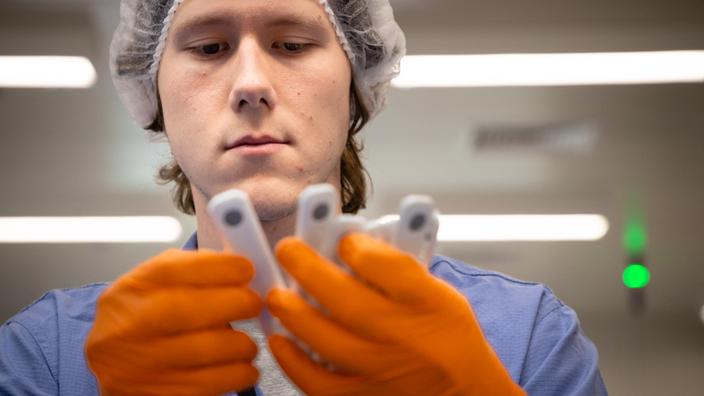Australian medical technology maker Ellume has recalled more than two million Covid-19 self-tests in the United States due to an increased risk of false positives, the United States Medicines Agency warned on Wednesday.
The FDA said the Ellume company had recalled 2.2 million tests since a manufacturing issue was detected last month.
Read also Self-tests under medical supervision reintegrated into the health pass
"
The FDA has identified this recall as Class I, the most serious type of recall
," the agency said in an advisory, noting that "
the use of these tests can lead to serious adverse health consequences or death
”.
The FDA said it has received 35 false positive reports and no deaths to date.
Abnormally high false positive rates
In early October, Ellume announced the recall of 195,000 of the 3.5 million tests shipped to the United States, including tests provided to the Department of Defense for community health programs.
This recall was ordered after false positive reports at abnormally high rates in certain lots.
Ellume said Thursday the recall was extended after other lots were questioned.
Read alsoAustralia reopens its borders closed for nearly 600 days
Ellume's over-the-counter product last year became the first rapid coronavirus self-test to receive emergency use authorization in the United States.
The firm said it resumed distribution of tests to U.S. retailers after identifying the cause of the problem and implementing additional controls.

